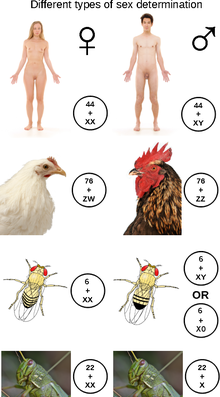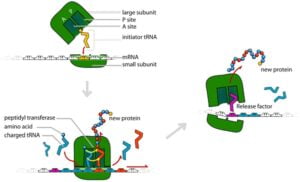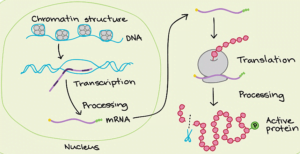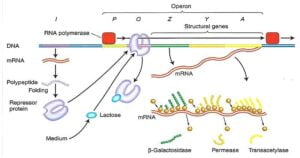Sex Determination in Human :-
sex determination is a biological system that determines the development of sexual characteristic in an organism. Sex determination in human by chromosomal difference. Most organisms that created their offspring using sexual reproduction have two sexes. In human beings a sex chromosome that carries the genes for male characters is called Y chromosome and one which carries the genes for female characters is called X chromosome.
We have a total of 46 chromosomes in each cell. Half of them come from mother and the rest from the father. Out of these 46 chromosomes, 44 are autosomes and 2 are sex chromosomes. The sex chromosomes are not always perfect pair.
In female there are 44 + x x while the chromosomes in man 44 + x y.
During gamete formation the normal diploid chromosome number is half (haploid). All the eggs in female have 22 + X chromosomes and male produces two types of sperm 22 + x, 22 + y.

Any one of the two types of sperms can fertilizes the egg, The zygote has the 44 + x y composition and resulting embryo grows to be a boy, when an x bearing sperm fertilizes the egg, the resulting zygote has the 44 + x x composition. This embryo develops into a girl.
Thus it is evident that it is the genetic make up of the sperm that determines the sex of the child. it is also evident that in each pregnancy there is always 50% probability of a either male or a female child.
In many birds, female has a pair of dissimilar chromosomes ZW and male has two similar ZZ chromosomes.

Grasshopper is an example of X0 type of sex determination in which the males have only one X chromosomes besides the autosomes.





